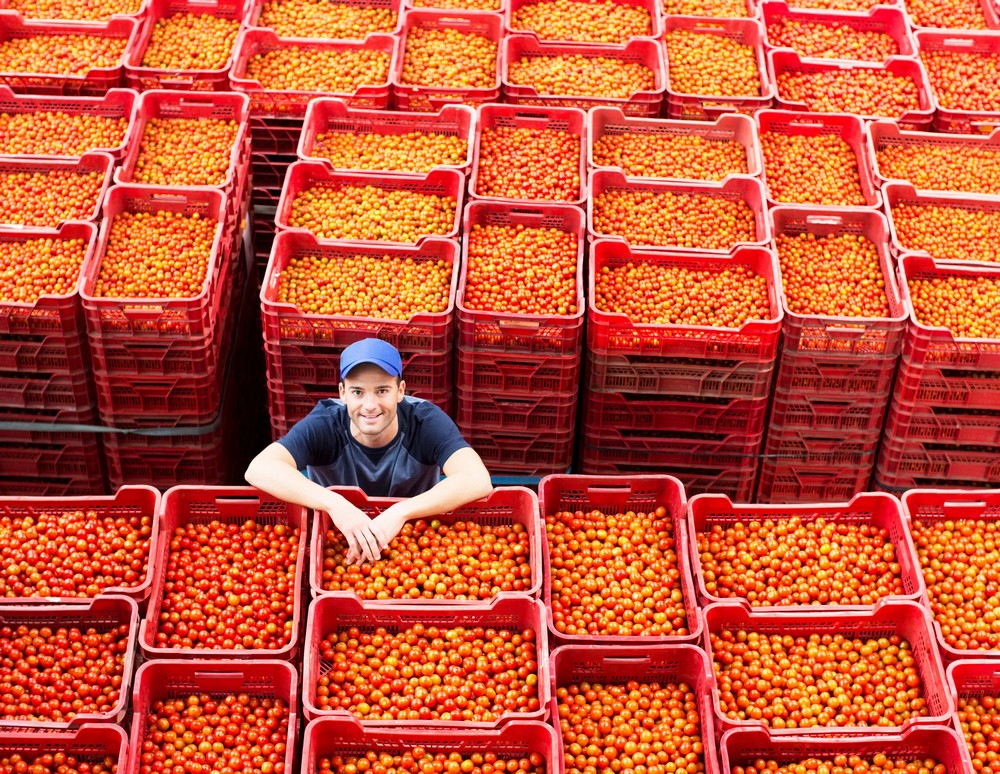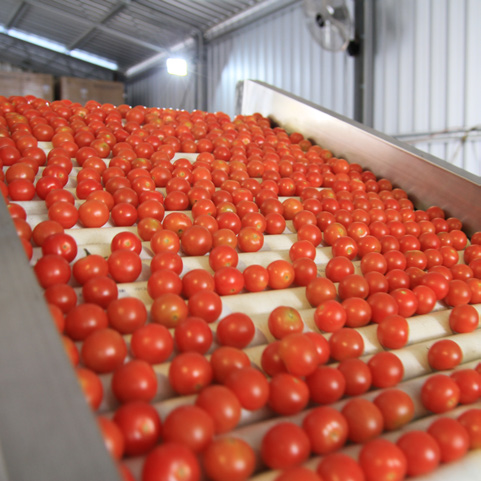Respect for your privacy is our priority
The cookie is a small information file stored in your browser each time you visit our web page.Cookies are useful because they record the history of your activity on our web page. Thus, when you return to the page, it identifies you and configures its content based on your browsing habits, your identity and your preferences.
You may accept cookies or refuse, block or delete cookies, at your convenience. To do this, you can choose from one of the options available on this window or even and if necessary, by configuring your browser.
If you refuse cookies, we can not guarantee the proper functioning of the various features of our web page.
For more information, please read the COOKIES INFORMATION section on our web page.


 "Tomatoes are one of life’s blessings. For growers, tomatoes give a high yield and are in strong demand. For consumers, tomatoes are packed with healthy antioxidants, nutrients, and vitamins. For processed food manufacturers, tomatoes add color, flavour, and natural goodness to juices, pastes, purees, sauces, and ketchup. And for food processing lines, tomatoes are a swelling revenue stream.
"Tomatoes are one of life’s blessings. For growers, tomatoes give a high yield and are in strong demand. For consumers, tomatoes are packed with healthy antioxidants, nutrients, and vitamins. For processed food manufacturers, tomatoes add color, flavour, and natural goodness to juices, pastes, purees, sauces, and ketchup. And for food processing lines, tomatoes are a swelling revenue stream.  Dealing with these challenges might sound like a mission impossible – but a century since processing solutions kick-started the tomato industry, now they are helping it expand internationally by enabling processors to meet tougher market demands. Today’s state-of-the-art technologies empower tomato processors to increase throughput, reduce food waste, improve product quality, meet product specifications, maximize packout, reduce the problems associated with dependence on manual labor, and improve profitability.
Dealing with these challenges might sound like a mission impossible – but a century since processing solutions kick-started the tomato industry, now they are helping it expand internationally by enabling processors to meet tougher market demands. Today’s state-of-the-art technologies empower tomato processors to increase throughput, reduce food waste, improve product quality, meet product specifications, maximize packout, reduce the problems associated with dependence on manual labor, and improve profitability.  A wide range of sorting equipment is offered by TOMRA both for large fruits and for smaller ones intended for packaging, which allow grading according to weight, size, shape, density, color, defects, etc.
A wide range of sorting equipment is offered by TOMRA both for large fruits and for smaller ones intended for packaging, which allow grading according to weight, size, shape, density, color, defects, etc.





























